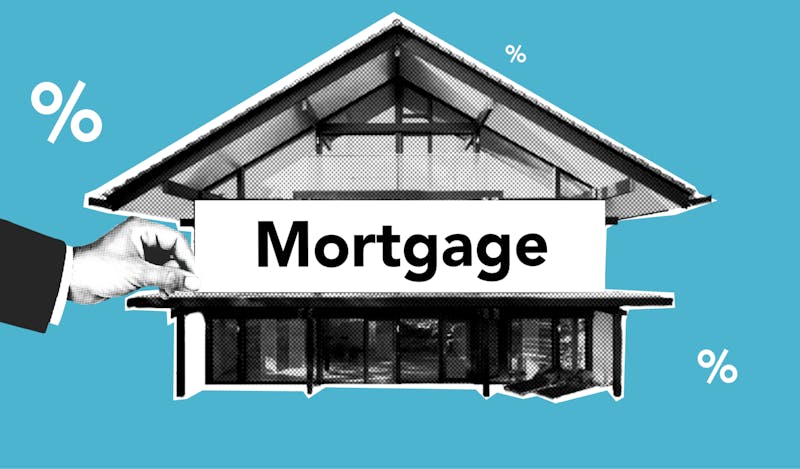In this comprehensive article, we will delve into the fundamental aspects of mortgages, covering various topics. Our goal is to provide you with a detailed understanding of the mortgage world, empowering you to make informed decisions and navigate the mortgage landscape with confidence. Let’s check the mortgage basics together:
What Is a Mortgage?
A mortgage helps you get financing for buying a home and property. It is a legally binding agreement between the borrower and the lender, typically a bank or financial institution, with the property acting as security for the loan. This means that if the borrower fails to make the required payments, the lender can take possession of the property through a process known as foreclosure.
Here are the parties involved in the mortgage process:
- Borrower:
The individual or individuals seeking to purchase the property and obtain the mortgage.
- Lender:
The financial institution or lender who provides the funds for the mortgage.
- Real Estate Agent:
A licensed professional who assists in the property search and purchase process.
- Mortgage Broker:
A middleman who connects borrowers with lenders and helps with the mortgage application process.
How Mortgages Work in Canada
Understanding how mortgages work is essential to make informed decisions about the most suitable options for your financial situation within the Canadian context. As mentioned earlier, mortgages involve borrowing funds to purchase or refinance a property, but let’s dive deeper into the mechanics:
- Principal: The principal amount is the original loan amount borrowed. As you make regular payments, the principal gradually decreases.
- Interest: Interest is the cost or fee charged for borrowing money, typically expressed as a percentage of the loan amount, which borrowers pay back to lenders along with the principal amount.
- Amortization: The amortization period refers to the total time it takes to repay the mortgage in full. Common amortization periods in Canada are 15, 20, or 30 years.
- Fixed vs. Variable Rates: Understanding mortgage rates and terms is essential for making informed decisions when purchasing a home in Canada. Mortgages in Canada can have fixed interest rates, where the rate remains constant throughout the loan term, providing predictability, or variable rates, which fluctuate based on market conditions after an initial fixed-rate period.
The Mortgage Process in Canada
The journey to obtaining a mortgage in Canada can be divided into several key stages:
- Preparation: Before venturing into the Canadian mortgage market, assess your financial readiness. Check your credit score, review your income and expenses, and determine how much you can comfortably afford to borrow.
- Research and Comparison: Thoroughly research different mortgage options available in Canada, including residential mortgages, private mortgages, and more. Compare interest rates, basic mortgage terms, and conditions to find the best fit for your unique financial situation within the Canadian mortgage landscape.
- Application: Once you’ve identified the ideal mortgage in Canada, submit a comprehensive mortgage application to the lender. The application will require detailed information about your financial status, employment history, and the property you intend to purchase.
- Underwriting: During the underwriting process in Canada, the lender evaluates your creditworthiness and assesses the risk involved in lending to you. They may request additional documents and conduct property appraisals to ensure the property’s value aligns with the loan amount.
- Approval and Closing: Upon approval in Canada, you will receive a loan commitment letter outlining the terms and conditions. After carefully reviewing and signing the necessary documents, the mortgage is funded, and you officially become a homeowner in Canada.
Types of Most Common Mortgages in Canada
In Canada, several types of mortgages cater to different financial needs and circumstances. Here are the most common ones:
1. Residential Mortgages:
These are traditional mortgages used to finance the purchase of a primary residence.
2. Private Mortgages:
Private mortgages are loans provided by individuals or private lenders rather than traditional financial institutions.
3. Reverse Mortgages:
Reverse mortgages are available to seniors and allow them to convert home equity into cash without selling the property.
4. Construction Mortgages:
These mortgages are designed to finance the construction of a new home.
5. Vacation and Second Home Mortgages:
As the name suggests, these mortgages are for purchasing vacation homes or second residences.
6. Home Equity Line of Credit (HELOC):
A HELOC allows homeowners to borrow against their home equity on an as-needed basis.
7. Interim Financing:
Interim financing provides short-term funds during the home construction process.
8. Renovations and Home Improvement:
Specific mortgages are available for financing home renovations and improvements.
9. Debt Consolidation and Bridge Financing:
Debt consolidation mortgages combine multiple debts into a single loan, and bridge financing covers the gap between the purchase of a new home and the sale of an existing one.
How to Qualify for a Mortgage in Canada
Qualifying for a mortgage in Canada involves meeting specific eligibility criteria set by lenders and regulators. Here are some key factors that lenders consider:
- Credit Score: A strong credit score demonstrates your creditworthiness and ability to manage debt responsibly. Lenders in Canada typically prefer a credit score of 680 or higher, but some may consider borrowers with lower scores.
- Debt-to-Income Ratio: Lenders assess your debt-to-income ratio, which compares your monthly debt payments to your gross monthly income. A lower debt-to-income ratio indicates your ability to handle mortgage payments alongside other financial obligations.
- Employment and Income Stability: A stable employment history and consistent income are essential for mortgage qualification in Canada. Lenders want assurance that you can repay the loan over the long term.
- Down Payment: In Canada, the minimum down payment required is typically 5% for properties with a purchase price of up to $500,000. For homes with a higher price, a larger down payment is required.
- Property Appraisal: The property you intend to purchase must undergo an appraisal to ensure its value aligns with the loan amount.
- Other Financial Factors: Lenders may also consider your assets, liabilities, and any other outstanding loans or financial commitments.
Meeting these qualifications strengthens your chances of securing a mortgage in Canada, allowing you to embark on the journey toward homeownership with confidence.
Here are some other tips to get a mortgage:
- Start by reviewing your credit score and history within the Canadian context. A higher credit score can improve your chances of securing a favourable mortgage.
- Determine how much you can afford to borrow based on your income, expenses, and down payment within Canada. Make use of the basic mortgage calculator in Canada to understand the financial implications of your mortgage.
- Prepare the necessary documentation, including proof of income, bank statements, and tax returns, to support your mortgage application in Canada.
- Understand the mortgage pre-approval process and consider getting pre-approved for a mortgage before house hunting within Canada. Through pre-approval, you can show the lenders that you are a credible and serious homebuyer.
- Complete the mortgage application and submit it to your chosen lender within Canada.
- The lender will conduct underwriting to assess your creditworthiness and the property’s value. Once approved, you’ll move forward to the closing process within Canada.
You’ve now gained extensive knowledge about mortgage options in Canada and the entire mortgage process tailored for Canadian readers. Armed with this information, you can confidently explore different mortgage types, compare lenders, and secure a mortgage that aligns with your financial goals and lifestyle within Canada.



